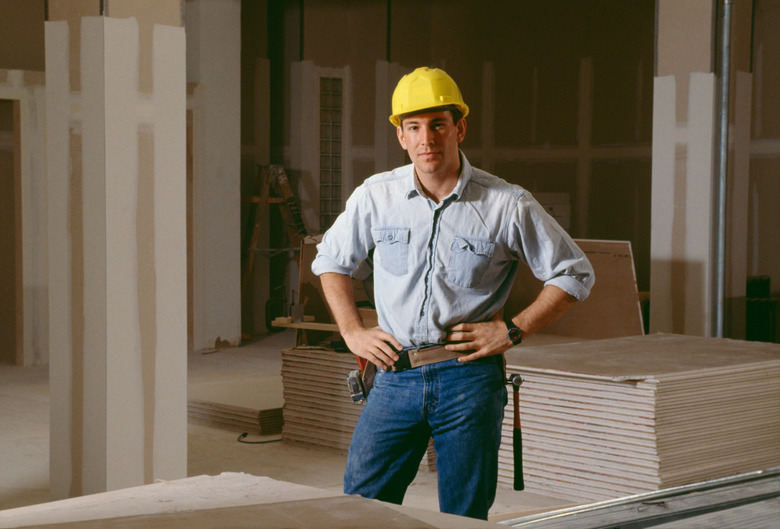At What Percentage Of Moisture Should Sheet Rock Be Replaced?
Sheet rock is an inexpensive and effective material for constructing walls in a home, but it is prone to decay and subject to the elements, just as wood or any other building material is. In homes where the humidity level becomes exceptionally high, sheet rock may be particularly vulnerable to rot and decay. It is possible to measure the percentage of moisture in your sheet rock to determine whether you should replace it.
Home Moisture
Home Moisture
Maintaining the proper moisture level in a house is essential for keeping drywall at its optimum level of dryness. According to the the U.S. Green Building Council's Green Guide, moisture levels in a home should remain under 50 percent. However, this is the recommendation for the moisture in a home and does not necessarily provide an accurate reflection of what percentage of moisture sheet rock should have. Generally, it should be less than the percentage of a home's moisture.
Measuring
Measuring
The measurement of drywall moisture can be completed using a specialized meter often employed to measure moisture in a variety of building materials, including wood and sheet rock. These meters have thin pins that are inserted directly into the material being measured to yield a moisture reading.
Percentages
Percentages
The dryer your drywall is, the better. Readings on a moisture reader will generally range from 5 to 40 percent. A range of 5 to 12 percent is considered optimal. A reading of up to 17 percent is generally considered moderate moisture and acceptable. Any reading over 17 percent is considered to be an indication of saturation and the need to replace the drywall and to take preventative measures against future moisture buildup.
Dangers
Dangers
Aside from deterioration of the drywall itself, high moisture readings could result in the growth of black mold, which can be hazardous to your health. This mold can be toxic and cause significant health problems, including extreme allergy symptoms. These symptoms can include dizziness, headaches, lack of concentration and decreased attention spans, along with chronic sinus infections.
